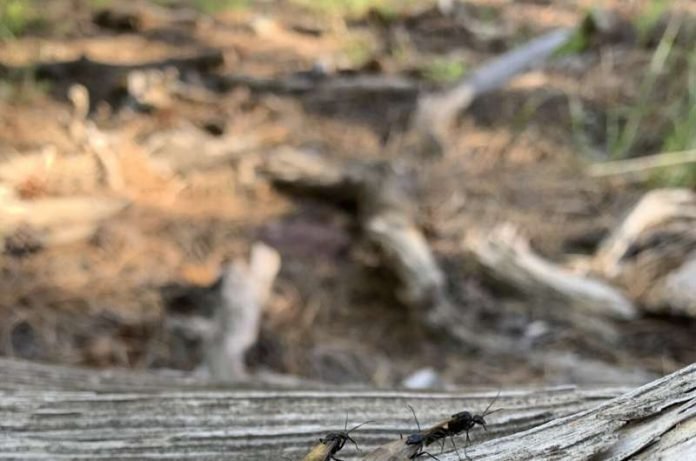
A recent study conducted by researchers from the University of Colorado Boulder has brought to light the significant impact of climate change on ant populations in Gregory Canyon, near Boulder, Colorado, over the past 60 years.
Published on April 9 in the journal Ecology, this research underscores the broader implications of shifting biodiversity on local ecosystems.
The study was initiated by Anna Paraskevopoulos, a Ph.D. student in the Department of Ecology and Evolutionary Biology at CU Boulder, who, inspired by an earlier study conducted in the late 1950s by CU Boulder entomologist Robert Gregg and his student John Browne, sought to examine changes in the ant community.
The research team meticulously replicated Gregg and Browne’s survey, collecting ant samples from the same sites during the same time of year between 2021 and 2022.
Ants, being ectothermic organisms, rely on the external environment to regulate their body temperature and metabolism, making them particularly sensitive to temperature fluctuations.
This biological characteristic makes ants an ideal subject for studying the effects of climate change on ecosystem dynamics.
Despite the expansion of the city of Boulder, Gregory Canyon has largely remained untouched by land-use changes, presenting a unique opportunity to isolate and study the effects of climate change on its ant populations.
The research revealed that while the total number of ant species in Gregory Canyon has increased, there has been a significant shift in the distribution and dominance of certain species.
Specifically, ant species that are able to forage across a broader temperature range have become more widespread, while those with narrower temperature tolerances have become rare or even disappeared.
This shift towards a more homogenized ant community across different habitats within the canyon could have profound implications for the ecosystem’s functionality and stability.
Ants play crucial roles in ecosystems, such as soil aeration, decomposition, seed dispersal, and predation on other insects. A reduction in ant diversity could, therefore, diminish the ecosystem’s ability to perform these essential functions, potentially destabilizing it.
The findings from Gregory Canyon serve as a microcosm of the broader “insect apocalypse” occurring globally, characterized by a rapid decline in insect populations and diversity.
This alarming trend, evidenced by a 45% decline in insect populations over the last four decades and significant decreases in specific species such as the monarch butterfly in North America, highlights the urgent need to address the impacts of climate change on insect communities and, by extension, on global biodiversity and ecosystem health.
This study not only contributes to our understanding of how climate change is reshaping biological communities but also underscores the importance of continued monitoring and research to mitigate the adverse effects of these changes on ecosystem functions and stability.
The research findings can be found in Ecology.
Copyright © 2024 Knowridge Science Report. All rights reserved.



